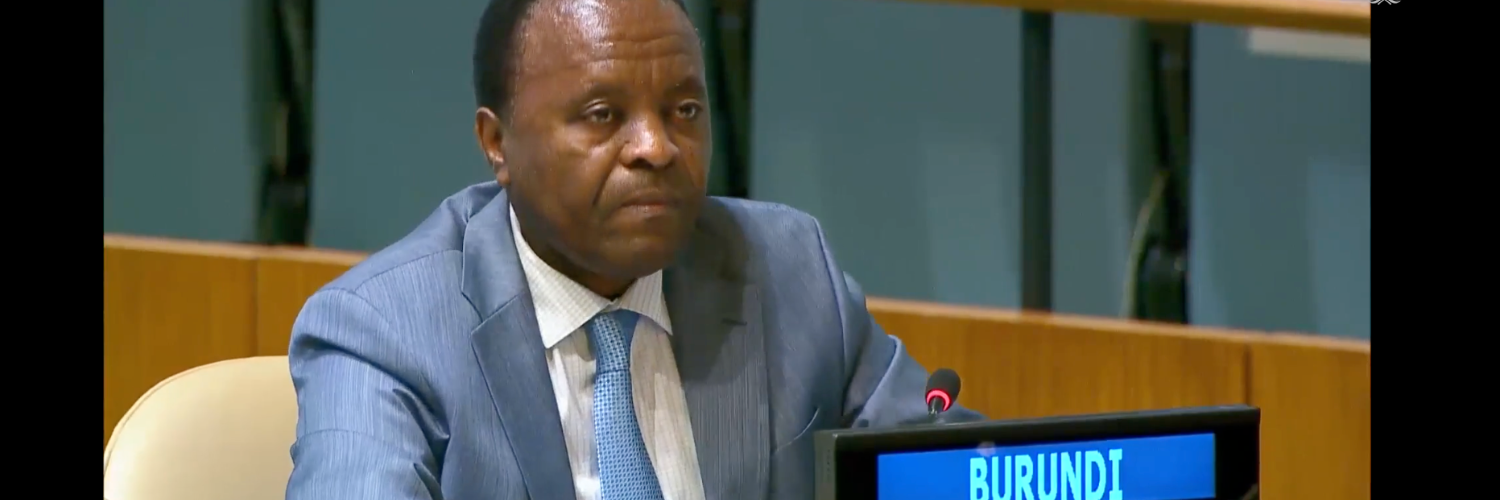UNITED NATIONS, December 20 (C-Fam) Even a small African nation can make a big difference for life and family. It is the message the Ambassador of Burundi, Zéphyrin Maniratang, gave the world when he took an uncompromising stand for life in the UN General Assembly this week.
“We do not agree that abortion can be characterized as safe,” he told the General Assembly in plenary session last Tuesday. He defended his country’s laws protecting children in the womb and called on countries to protect the family.
“Abortion always ends the life of one human being and wounds a mother for the rest of her life,” he continued, “We agreed in 1994 at the ICPD conference that countries have a right to legislate on abortion without external pressure or interference. The ICPD also recognized that abortion is not a good to be promoted, but always a tragedy to be avoided. We remain firmly committed to this.”
Ambassador Maniratanga criticized the use of terms like “sexual and reproductive health” as euphemisms for abortion and he called for the UN system to respect nations laws. In a resolution against child marriage, he criticized the promotion of sexual autonomy for children, arguing that “the only internationally recognized ground for protecting sexual autonomy in human rights law” was in the context of the equal rights of men and women in marriage.
He also criticized Western countries for manipulating UN resolutions to promote controversial social norms that otherwise enjoy consensus. Specifically, he criticized the European sponsors of a resolution against extrajudicial executions for adding language about sexual orientation and gender identity. “This resolution is not the right place to debate social norms about sexuality,” he said.
“Everyone agrees that extrajudicial, summary, or arbitrary executions should be stopped immediately everywhere,” Maniratanga explained. “But the concept of sexual orientation and gender identity is not internationally agreed. It is a vague and subjective concept that has no standing in most legal systems.”
Maniratanga was not alone in expressing reservations about language related to gender, LGBT issues, and intersectionality.
A delegate from Egypt said that her country wanted to note their “persistent objection” to the use of language about sexual orientation and gender identity and other controversial issues she said were “outside the purview of international human rights law.” “Persistent objection” is a term of art to make clear that “customary international law” has not been established, which requires unanimous assent in practice.
Delegates from Belarus, Nigeria, and Niger also expressed concerns in order to have an official record of their dissent and prevent the establishment of new norms. They did so despite calls from the United States and the European Union that governments should go along without a fuss.
Maniratanga chaired the third committee of the General Assembly, where most of the resolutions were debated last month. His delegation played a key role in ensuring a landmark resolution on the family did not include abortion-related language.
After the family resolution was adopted, Maniratanga called attention to his country’s recent accession to the Geneva Consensus Declaration on Promoting Women’s Health and Strengthening the Family, an initiative of the first Trump administration that is expected to be re-launched during the second Trump term. After noting the growing threat of declining fertility and rapid aging across the world, he emphasized that “the challenges we collectively face can only be met by putting the family at the center of our efforts.”
View online at: https://c-fam.org/friday_fax/burundi-draws-line-against-abortion-extremism-at-united-nations/
© 2026 C-Fam (Center for Family & Human Rights).
Permission granted for unlimited use. Credit required.
www.c-fam.org









